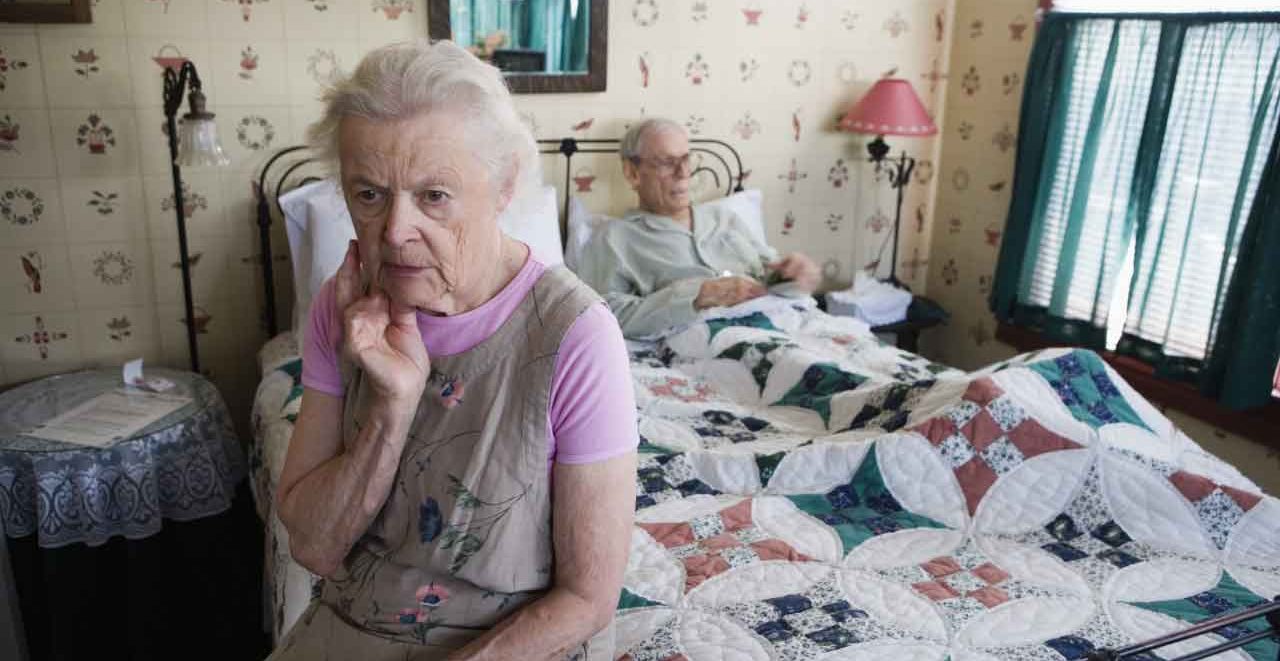Caring for Someone Who Is Bedridden

Comfort and dignity are the most important priorities.
When caring for someone who is bedridden comfort is paramount.
Lying in a bed around the clock makes patients physically uncomfortable and bored.
YOU MIGHT ALSO LIKE: Caregiving Can Be an Emotional Roller Coaster
Someone who is bedridden needs constant support for their back and joints to prevent strain. Their arms and legs should be supported. Always help the person maintain good posture and a comfortable position.
It’s always better to communicate to patients what you are going to do when changing their position in bed so you can get as much cooperation as possible rather than lifting them.
If patients can’t help themselves, you need a draw sheet and a second person to move the patient around the bed. It also helps to keep linens clean and to provide several pillows for support, says the Northwest Regional Council Family Caregiver Program (NTCFTP).
Bedsores and pressure ulcers from lack of movement are another big problem. A bedsore is a breakdown of the skin or wound over a bony surface. Ulcers develop when blood supply to the skin is reduced gradually.
Bedsores are caused from prolonged pressure against the skin, mostly on the lower part of the body or place where the body makes contact with the bed when sitting or reclining.
Caregivers need to recognize the early signs of bedsores, which are usually redness, blistering, or the skin breaking down into a sore. The best preventive measure is to move the patient in bed frequently.
Bedsores form on the pressure points such as the buttocks, spine, elbow, and hips. Stretching and moving joints will help decrease bedsores, while stimulating blood flow and preventing joint stiffness, says the NTCFTP.
Because of their sedentary position, bedridden patients are also at increased risk of blood clotting, or blood pooling in the veins. When that happens, the clots that form can move to the lungs, heart, or brain.
Bedridden patients need hygiene as much as anyone else, yet under the circumstances caregivers might feel overwhelmed and forget.
YOU MIGHT ALSO LIKE: Caring for a Person with Alzheimer’s
“You know how good it feels to have a hot shower, brushed teeth and clean clothes, so make sure your loved ones get to have the same treatment,” says the Mesothelioma Cancer Alliance (MCA). “Some patients may be able to get up and shower or take a bath with minor assistance, but some may be unable to do so.”
A bath every other day, washing their hair every few days, and making sure a toothbrush and toothpaste are out and ready to use help bedridden patients overcome the feeling of being confined all day and night. Haircuts and shaving can also be a part of your caregiving routine to keep your loved one’s morale and self-esteem up.
To keep the care consistent, even though it can get frustrating, put yourself in their place, says the MCA.
“Being confined to a bed and robbed of your independence due to a disease can place a large mental and emotional strain on your loved one,” says the MCA. “Make sure you both take time to communicate your feelings so you can better understand each other’s needs.”
One of the symptoms of a serious disease can be incontinence. That makes your understanding very important. Bedridden patients can be embarrassed and uncomfortable with incontinence, but it’s very common.
There are many types, all of which can make it more stressful for you and the patient. The best thing you can do is use high-quality absorbent products – some like diapers – different types of catheters, and skin-care and odor products.
The goal is to make continence a regular occurrence, with as much dignity as possible for the patient.
This is a stressful job. An important part of being a caregiver is knowing when you need professional help so you can keep up and even get a break now and then. There are many caregiving services available in you area. Talk to your medical team for some recommendations.
Resources
- Caregiver.com
- The Caregiver Initiative
- Family Caregiver Alliance
- National Alliance for Caregiving
- Caregiver Action Network
- Well Spouse Association
- ARCH National Respite Network and Resource Center
YOU MIGHT ALSO LIKE: Caregiving Options Vary But All Have Their Merits
Updated:
April 07, 2020
Reviewed By:
Janet O’Dell, RN